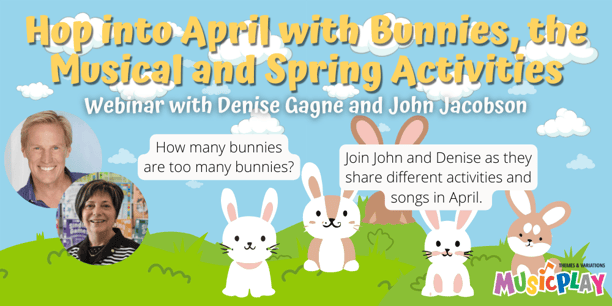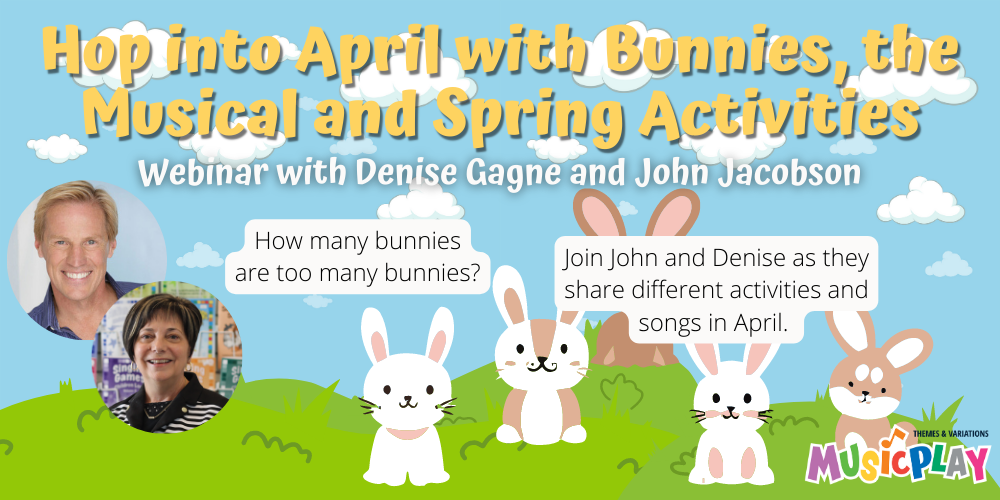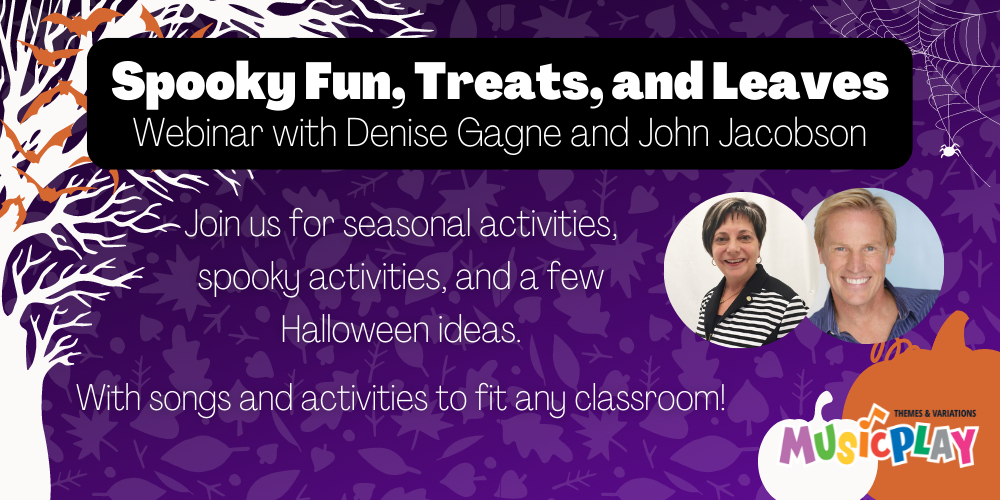Name Games
It's difficult to have good classroom management or to assess if you don't know the names of your students. I met a teacher in Ontario (Dan - my hero!) that teaches more than a thousand students each week. Although it might seem impossible to learn the names of that many students, if you review names at the beginning of each class, you have a chance at least at remembering them for the 30 or 40 minutes that you're with them.
Name games also provide opportunities to teach many other musical concepts.
Denise's New Favorite Beat Chant
Beat, beat, feel the beat.
Say your name, then take your seat.
The kids all stand, and keep a beat (two finger clap is good). When you get to child 1, the child says, "My name is ______" You continue on until each child has had a turn. Help the students who have names that are tough to fit on the beat.
Form is:
Chant
4 names
Chant
4 more names
First time I do this, I do it with clapping.
Week 2 with a hand drum - explain how hand drum is played, classify it.
Week 3 with a tambourine - again, explain how it's played, classify it.
Week 4 with a woodblock
This gives me the chance to reinforce steady beat (observe and assess how well they keep a beat), learn names, and gives an opportunity to demonstrate correct playing of all the non-pitched and classify them.
Musicplay 3: Number Concentration Number off each of the kids. When you sing the #, they sing back their name. Keep a beat with two fingers. If someone misses singing back their name on the number, they are "out." Instead of going "out", I have them choose a new tempo from the word wall, and we repeat the game at the new tempo.
The song is: Don't forget your number (ti-ti ti-ti ta ta on ss mm s m)
Don't forget your name (ti-ti ti-ti ta sh on ss mm s rest)
When you're ready (ta ta ta ta on s m s m)
Start the game! (ta ta ta ta on s s d sh)
There is an Orff arrangement (by Rob Amchin!) in The Orff Source Vol. 2. (available Plank Rd)
I like to teach and play the game one class. In the next class, we review the game (and the names), then teach the orchestration.
I have kids create a B section using number patterns: 1, 2, 4-5, 6 8, 88, 2, 1 and then transfer the number patterns to non-pitched. We then perform the whole thing as a rondo.
In Musicplay 5, I have the more traditional version of Concentration: Concentration, everybody ready When you hear your name, the game begins. Students sing their own name, someone elses. That student sings his own name, someone elses.
It's a great way to learn the names AND a great way to assess how well they are matching pitch. If the 5th graders are really reluctant singers, let them chant it instead of singing until they've developed more confidence as singers. Find something great to say about the singing in the class:
- excellent diction!
- you've got great open mouths!
- I love your energy!
Good singing will only develop if the kids sing --- if they never sing, they're not likely to improve as singers, so encourage, support and find something positive to say about their singing!
And how do they develop confidence? Catch someone doing something right and praise them. Praising the positive goes a lot further than nagging.
Hello attendance - sing the child's name and they sing Hello teacher back to you.
Again - a great way to learn the names AND a great way to assess how well they are matching pitch.
Musicplay Live
Registration for Musicplay Live in Washington, DC; Austin, TX; and Virtual is open!
Musicplay Workshops

Check out our latest webinar on activities for April, including Easter and Spring activities AND Bunnies: The Musical!
Musicplay Minutes Podcast

Listen to our newest podcast on ideas for St. Patrick's Day and Earth Day!

.png?width=483&height=405&name=MusicplayLive%202023%20Sing!%20Say!%20Dance!%20Play!%20With%20Artie%2c%20Denise%2c%20and%20JJ%20Locations%20FB%20(2).png)

